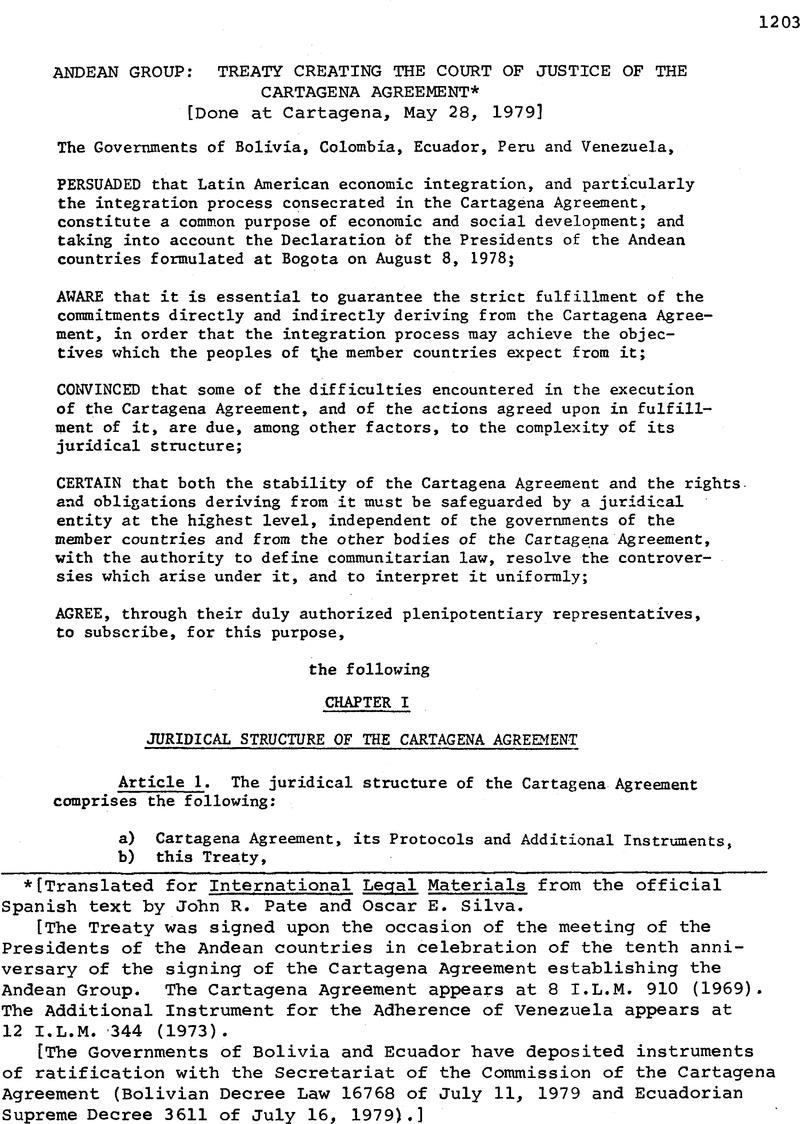No CrossRef data available.
Article contents
Andean Group: Treaty Creating the Court of Justice of the Cartagena Agreement*
Published online by Cambridge University Press: 20 March 2017
Abstract

- Type
- Treaties and Agreements
- Information
- Copyright
- Copyright © American Society of International Law 1979
Footnotes
[Translated for International Legal Materials from the official Spanish text by John R. Pate and Oscar E. Silva.
[The Treaty was signed upon the occasion of the meeting of the Presidents of the Andean countries in celebration of the tenth anniversary of the signing of the Cartagena Agreement establishing the Andean Group. The Cartagena Agreement appears at 8 I.L.M. 910 (1969).The Additional Instrument for the Adherence of Venezuela appears at 12 I.L.M. 344 (1973).
[The Governments of Bolivia and Ecuador have deposited instruments of ratification with the Secretariat of the Commission of the Cartagena Agreement (Bolivian Decree Law 16768 of July 11, 1979 and Ecuadorian Supreme Decree 3611 of July 16, 1979).]
References
* The regulations of the Junta were approved by Decision 9 of the Commission at its 2nd Ordinary Period of Sessions, Lima, March 9-13, 1970.
* The Treaty of Montevideo, subscribed in 1960, created the Latin American Free Trade Association; there are eleven contracting parties.
* This provision has been included in the Treaty Creating the Andean Court of Justice in anticipation of the possible termination of the Treaty of Montevideo at the end of 1980. The Cartagena Agreement was subscribed as a subregional accord under the treaty authority of the Montevideo Treaty and was not accorded international treaty status by the participating states. Because of the inability of the contracting parties to fulfill the commitments of the Treaty of Montevideo, beginning in the early to mid-1960s, the parties adopted the Protocol of Caracas in 1969 extending until December 31, 1980, the deadlines originally provided in the Montevideo Treaty. As there is no present indication that the contracting parties of the Treaty of Montevideo will fulfill their treaty obligations, this would imply the termination of the Montevideo Treaty, and of all international agreements reached under it, as of the end of 1980. Hence, the five Andean governments have hereby sought to assure the formal ratification, and thus the legal continuation, of the Cartagena Agreement.




